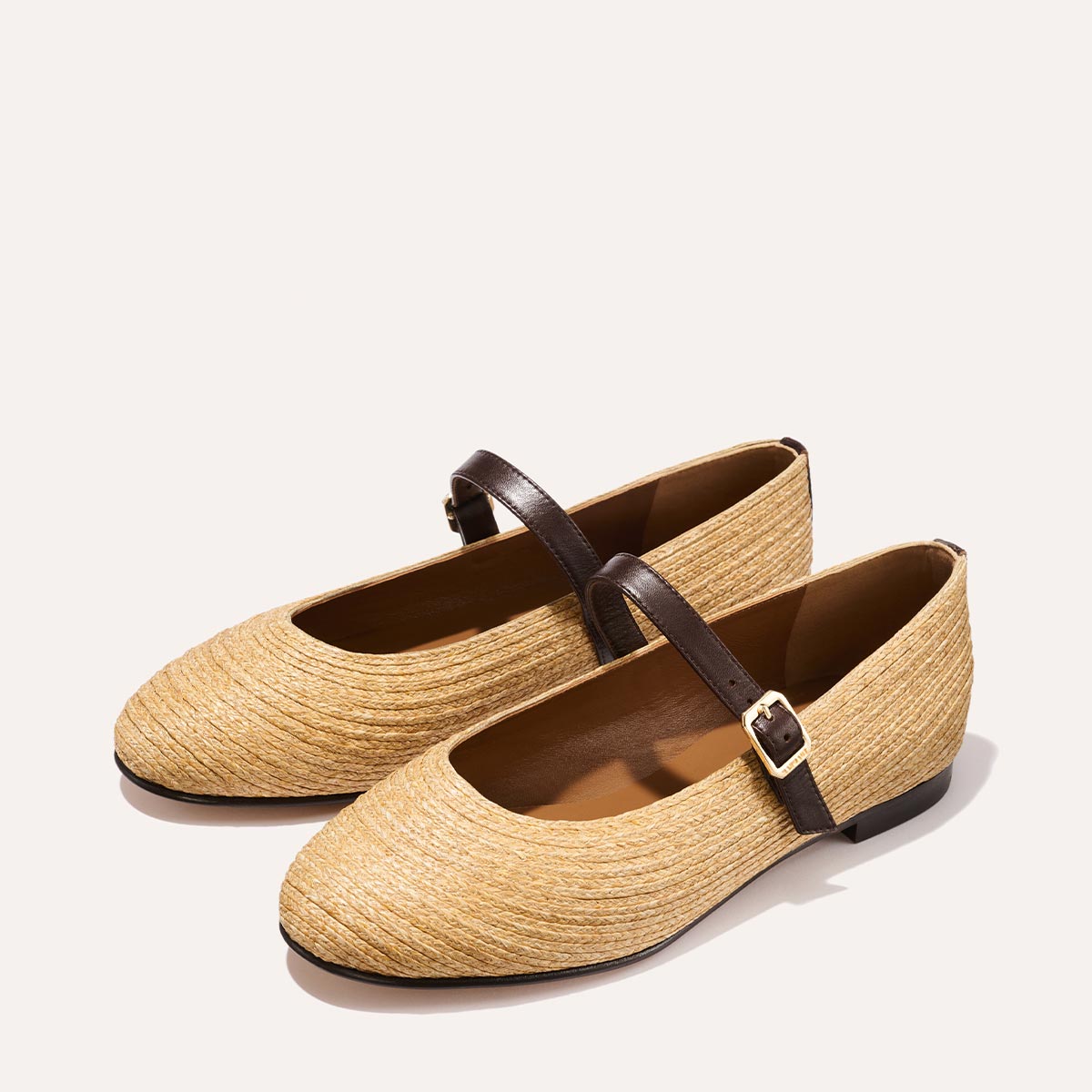Introducing our Gaux Girls to the wider Margaux community is one of our favorite parts of the series. They're women we've met, loved, and been inspired by—so of course we want you to get to know them too. That desire is even more top-of-mind with our newest Gaux Girl, writer Nicola DeRobertis-Theye, as she's the author of our current Footnotes book club pick, The Vietri Project. In addition to featuring her here, Sarah and Alexa will be hosting a Zoom chat with her late next month and would love for you to attend. If you haven't already joined up, send us a note at events@margauxny.com and pick up your own copy of the book.
The chance to get to know Nicola some before diving into her debut novel was a true gift. In a New York City that's slowly reawakening from Covid, it was so special to meet her on the street in Brooklyn for a chat and some photos. It's not an exaggeration to say Nicola is one of the kindest, warmest people we've met recently. After a career in publishing that included planning events for other authors, her excitement over being the one behind the pen was palpable.
Read on for a look at her writing routine, the way style is used to signify things about her characters, and more.
Congrats on publishing your first novel! Was writing something you've loved since you were a child? Did you grow up dreaming of being an author?
As a child I was a huge reader—it was pretty much my defining characteristic. But I was sure I would grow up to be a marine biologist. That lasted only until I took biology in high school. I’m not sure when it occurred to me that it might be possible to be a writer as well—by middle school, high school? But absolutely, as soon as I knew it might be possible, it was the dream.
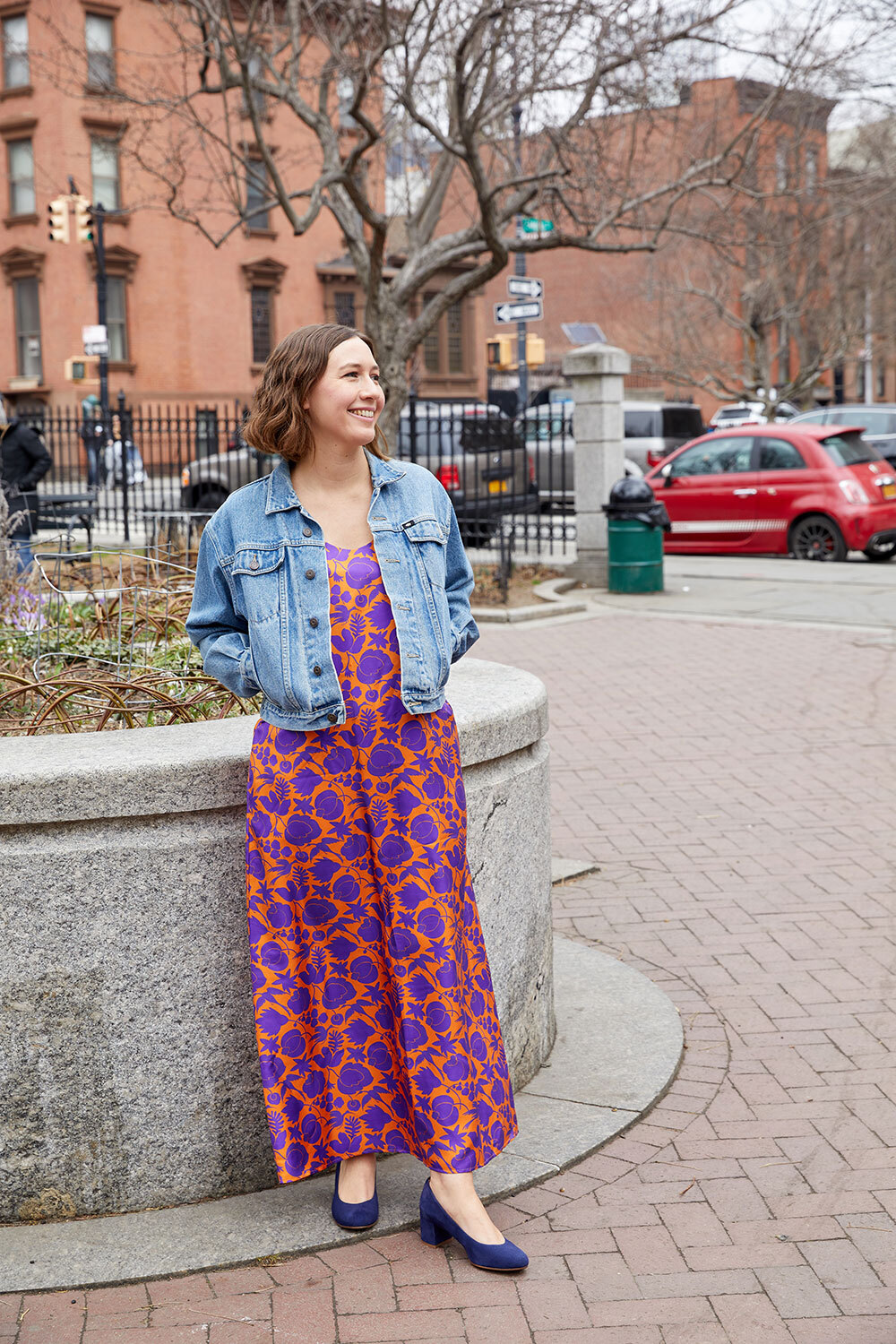
Can you share your career path with us? How did you balance writing with your full-time job?
After college, I worked at a bookstore running author events for two years, and then I decided to get an MFA. After grad school, I knew I wanted to try to work in publishing while I worked on my book, so I moved to New York. Since I had a 9-5, I wrote on weekend mornings, and occasionally evenings after work. So it took five years to finish the book.
Writers can be very habit- or processed-based. Do you have any that are signature for the way you work?
My number one rule is to try to write in the mornings, and not to look at my phone or email or any internet before I sit down to write, to preserve that imaginative, dreamy headspace. I also try to write facing a window if I can, or somewhere with a lot of light. I write mostly on my laptop, in Microsoft Word, and early drafts are always a mess of fragments that I then try to hang together as a whole.
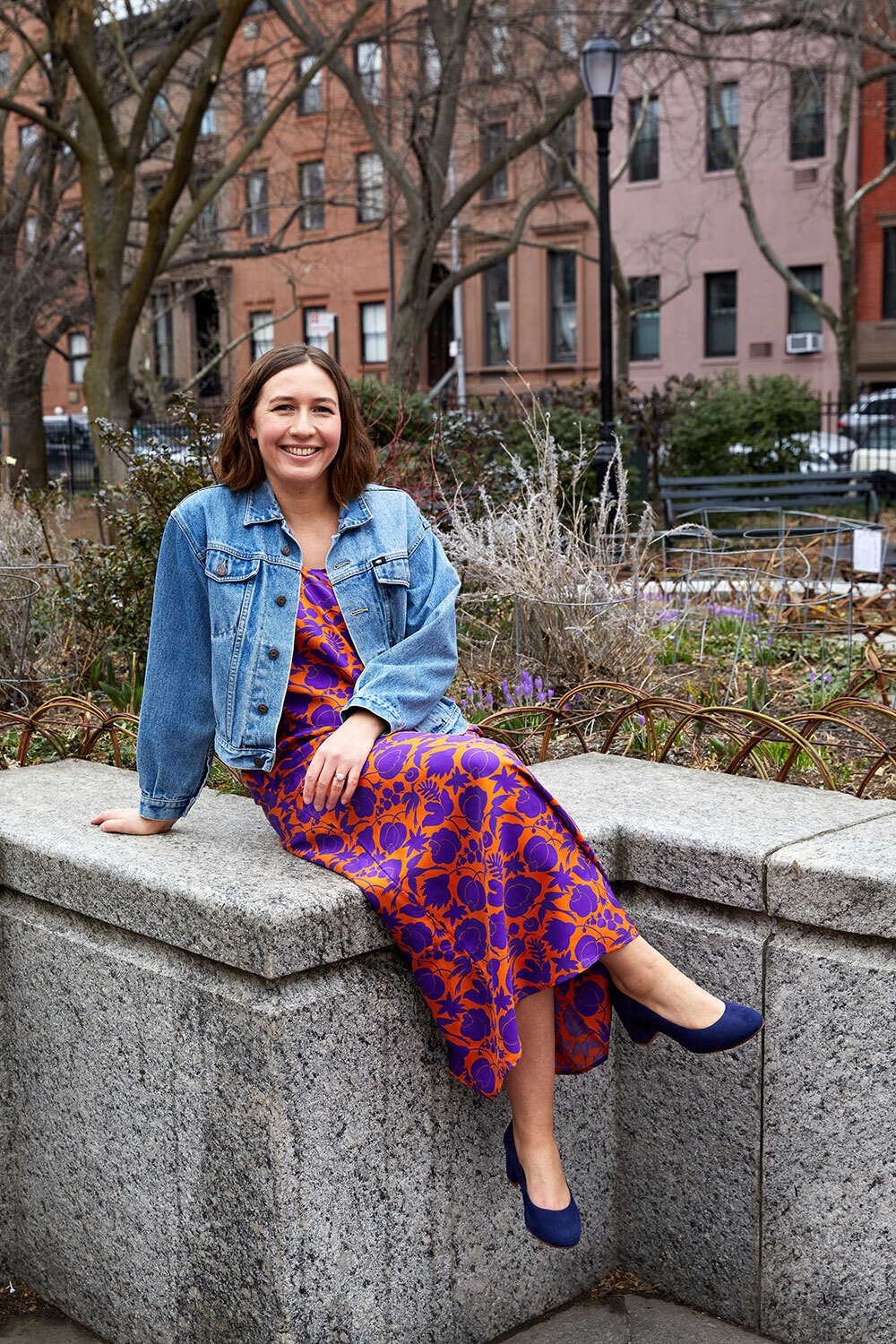
What were some of the biggest lessons you learned while writing The Vietri Project? What does it feel like for the book to be out in the world?
I learned a lot about Italian history—I had received Italian citizenship before I started writing the book, and it was in one aspect a way of examining that inheritance. I also learned how hard copyediting is! Now that it’s going out into the world, it feels very strange, and exciting, and tender. Something that was so private for so long is now something people can talk about on the internet.
What do you hope people take away from reading it?
The book in many ways is about how hard it is to decide what kind of life you want to lead, to be a good person, to choose a path that is meaningful. I think that’s the work of a lifetime, but it’s especially urgent feeing in your 20s and 30s, in my experience.
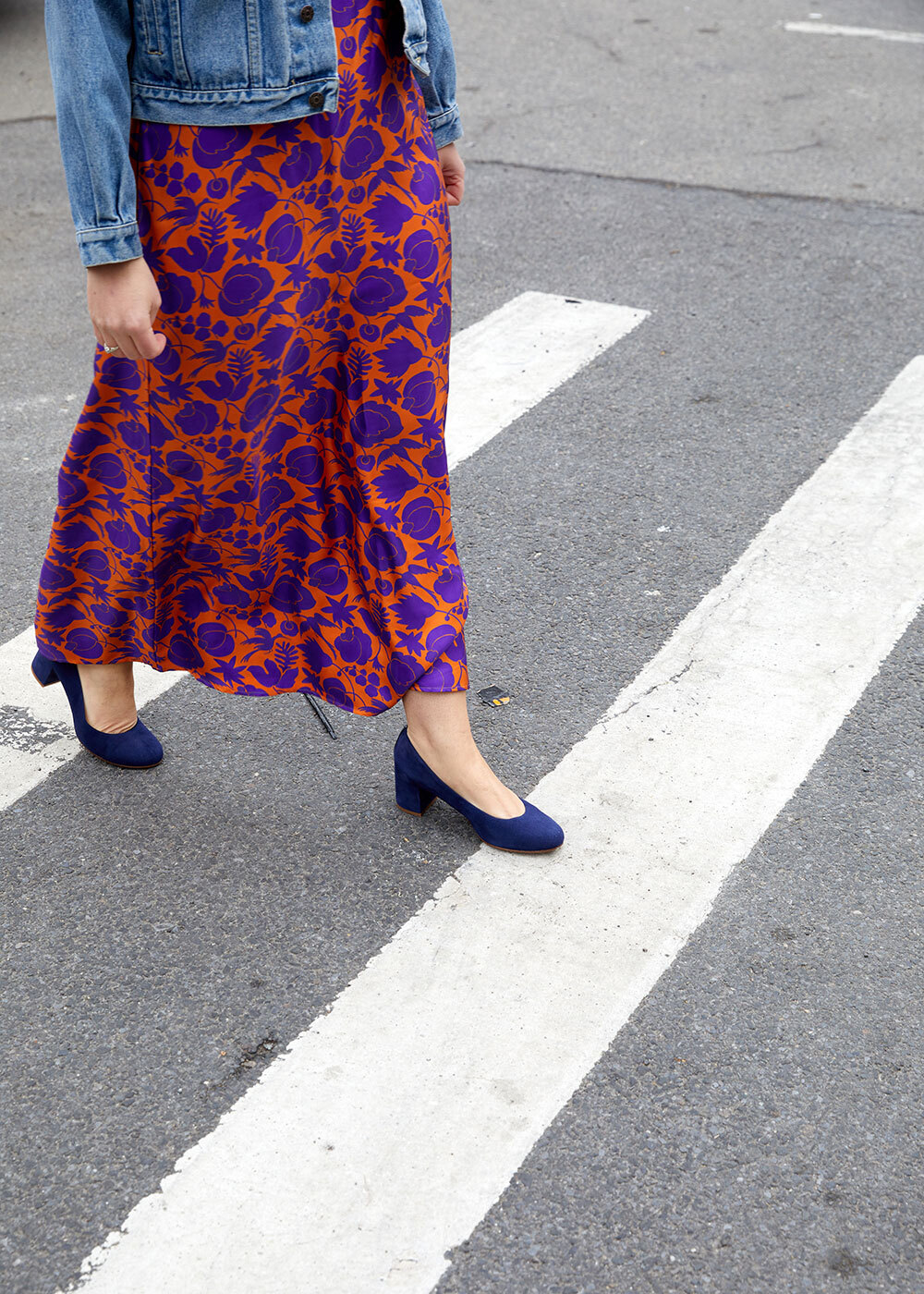
Could you share a book that's impacted you or is a personal favorite?
One of the most formative books for me as a writer was The English Patient by Michael Ondaatje, which I first read in high school.
How does fashion/style fit into the characters you developed in the novel? Do you think about how a character would dress?
Absolutely. Clothes are so much about how we present ourselves to the world, and also how we narrate our self to ourselves. They also mark a turning point for my narrator—there’s a scene where she throws out her travel-worn flip-flops and purchases flats and tights, a way of deciding to stay in Italy for a new season. And since the book is set in Rome, the Italian characters’ fashion choices were especially fun to imagine. I think Italians are considered very elegant dressers, but there’s definitely a wacky streak.
What does being a girl on the gaux mean to you?
Being up for anything, but purposefully: big purse, cute shoes you can walk in, ready to go where the day takes you as long as it’s somewhere you want to go.
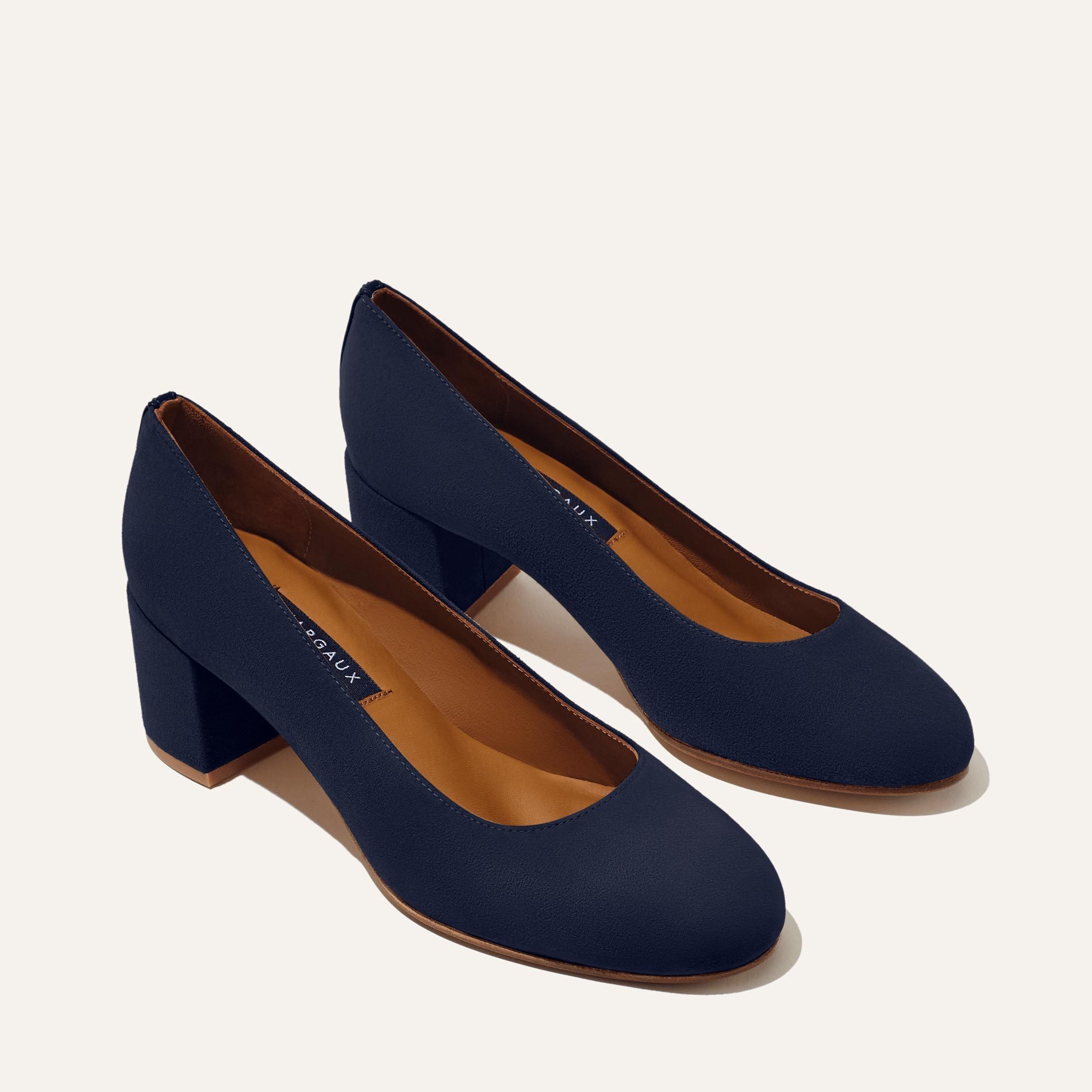
Shop The Heel in Midnight Suede here



